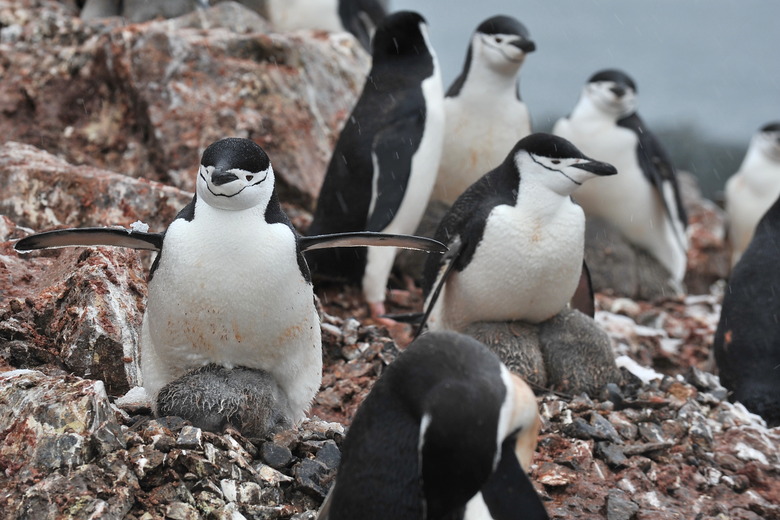This Research Into Penguin Mating Activity Was Silenced For A Century
Penguins are cute. We all know that. But as it turns out, they're promiscuous, too – a long-kept secret by naval surgeon and zoologist George Murray Levick.
Levick was part of British explorer Robert Falcon Scott's expedition to reach the South Pole. The expedition failed, of course, and many of its members died, but Levick lived to tell the tale. The manuscript he published following the journey marked the first scientific descriptions of Antarctic penguins, according to Science News – but it left out some juicy details.
Breeding Cycle Secrets
Breeding Cycle Secrets
Levick observed Adelie penguins for months, including their whole breeding cycle. In that time, he witnessed same-sex mating rituals, infidelity and even some forms of "prostitution," all of which he recorded in a second manuscript titled "The sexual habits of the Adelie penguin." However, he labeled the manuscript as "not for publication," and it wasn't released for nearly 100 years.
But Levick's secret manuscript held some riveting information, according to a Wall Street Journal review of the book "A Polar Affair," which also details penguins' secret love lives. Upon meeting, a pair of penguins might "trumpet loudly in unison, standing breast to breast, their bills pointed skyward, waving their heads and and necks about each other." The birds are not monogamous, though scientists previously believed them to be. In fact, male penguins are almost disturbingly undiscriminating toward potential partners.
According to the New York Times, the behaviors Levick witnessed got even more intense. In addition to casual sex, he watched penguins engage in rape. In their own form of prostitution, the female penguins would offer sex in exchange for stones to lines their nests. And Levick encrypted these details in Greek lettering when compiling his manuscript.
A Polar Affair
A Polar Affair
Penguin biologist and author Lloyd Spencer Davis, who authored "A Polar Affair," believed in 1996 that he was the first scientist to have observed the Adelie penguins' mating ritual secrets. When Levick's secret manuscript was finally published in a scientific journal in 2012, Davis realized he wasn't alone, and he wondered why Levick's observations had been kept secret in the first place.
"A Polar Affair" follows Davis' attempts to understand why Levick's discoveries went unpublished for so long, or – as Davis put it – why Levick would discover the dirty side of penguins and then try to cover it up. But it also explores potential evolutionary benefits of penguins' same-sex mating and nonmonogamous patterns.
The whole story is a lesson into why it's important not to anthropomorphize animals — essentially interpret their behavior as good or bad depending on whether it's socially acceptable in human culture. Science is all about observing the world around you and reporting the truth, even if that means reporting weird animal behavior!
Cite This Article
MLA
Swanston, Brenna. "This Research Into Penguin Mating Activity Was Silenced For A Century" sciencing.com, https://www.sciencing.com/penguin-sex-coverup-13723776/. 30 December 2019.
APA
Swanston, Brenna. (2019, December 30). This Research Into Penguin Mating Activity Was Silenced For A Century. sciencing.com. Retrieved from https://www.sciencing.com/penguin-sex-coverup-13723776/
Chicago
Swanston, Brenna. This Research Into Penguin Mating Activity Was Silenced For A Century last modified August 30, 2022. https://www.sciencing.com/penguin-sex-coverup-13723776/
